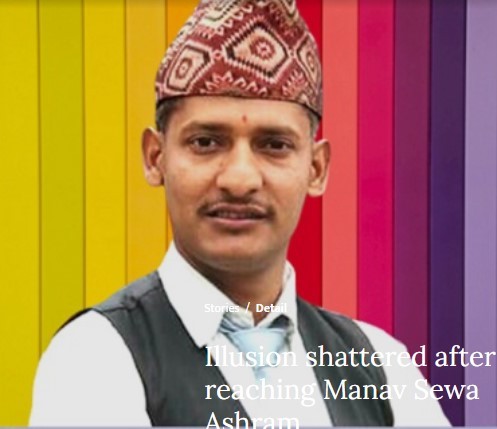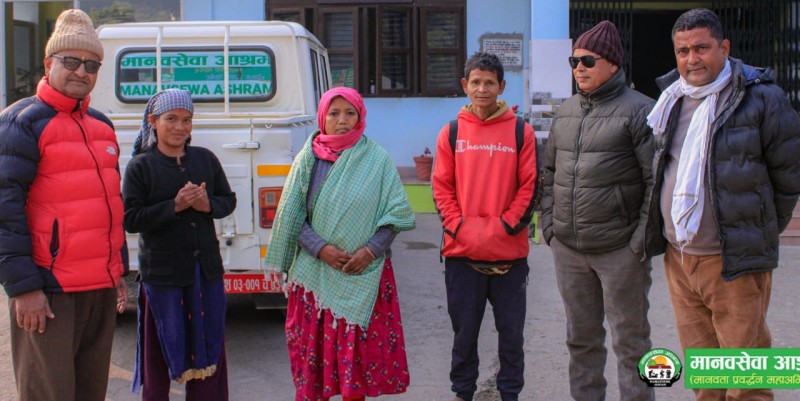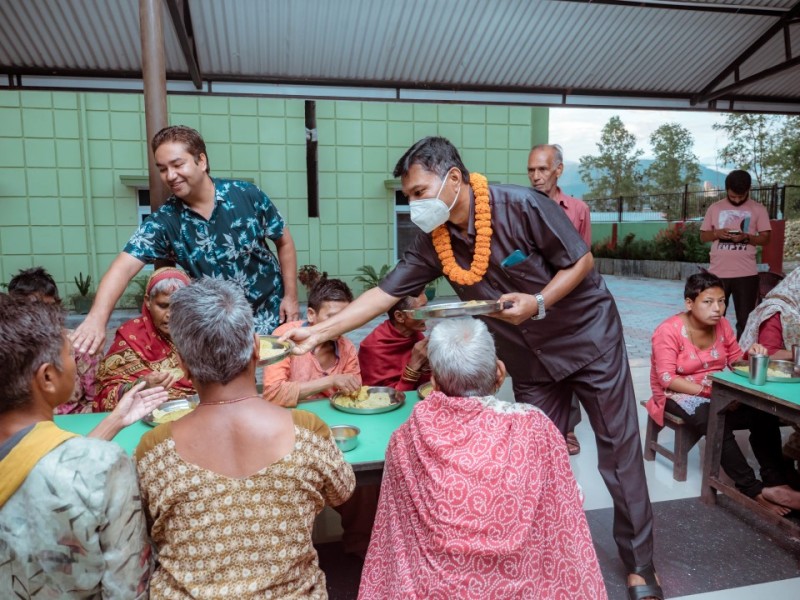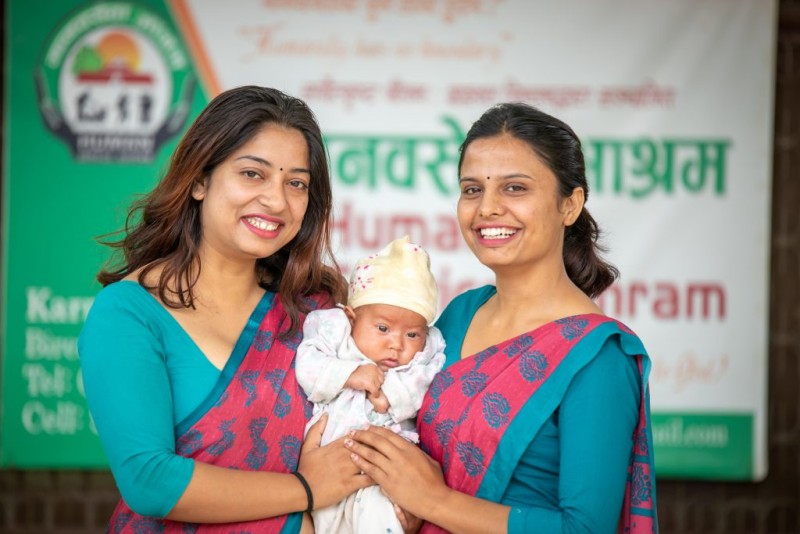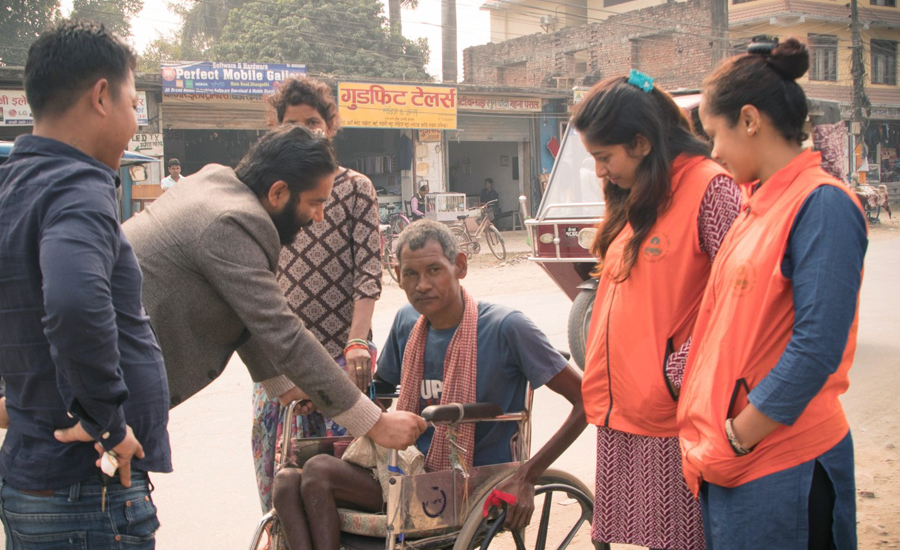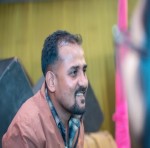Imagine what a 33-year-old man would do? What do you think? What will be his outlook on life?
Now, keep the answer with you. And read the story of this 33-year-old young man. Those who have set out on a journey far beyond buying a house, buying a car and living a happy life. They are looking for a new definition of life.
Life is the same. However, people live it in many ways. Many coincidences occur in life, which are beyond human imagination. However, all three coincidences create a new definition of life. How many by chance do they poison, how many by chance do they drink nectar.
Also, a coincidence. If Ramji Adhikari had not gone to the picnic in 066, where would he be today? He doesn't know.
With that picnic, he has now become the parent of 800 helpless, disabled, orphaned and crippled people. 60 young activists like him think and search for 18 hours a day. And take the medicine of love to Manav Seva Ashram
They feed Ramji is the president of Manavsewa Ashram.
That picnic with a vision
Ramji was studying in the campus. Reading is not just acquiring book knowledge.
Along with studying, Ramji was in the campaign of 'Sarvokrishta Jeevan Saswat Chintan'. Let's say, he was also teaching at the Open University. It was a campaign to create good people with positive thinking, humanity and social feelings.
During that campaign, they organized a picnic in Hetounda in 2066. But such a picnic, which is very different from the existing definition.
From that picnic, they made the sky a roof and tried to feel the life of street dwellers. He reached the street and collected 18 elderly people. He put it in the van of Hetaunda municipality. And reached the picnic spot.
The body of the old people who were picked up from the road was smelling bad. They bathed. There were long nails in the garbage, they cut them. Hair was matted, cut short. The body was full of wounds, dressing was done. And put on clean clothes. And sat with the old people and ate hot food, danced and had fun.
After doing this, the actors felt such joy, which was beyond imagination. Ramji says, 'After nightfall, we had to take them back to the road and leave them. We made up our minds and did it.
It was getting dark. When leaving, Kadima Syangtan held her hand and said, 'Earlier we used to beg for food. But, you made it clean, put on new clothes. Who will feed us now?'
Kadima's bullet-like speech made Ramji cry badly. Only one thing reigned in their minds that we committed a very big sin. I thought all night. The next morning, he decided, "No matter what, we must rescue those who spend their time in the street box."
At first they reached some ashrams, some spoke for the elderly. However, those whose stool and urine are not in balance, who are mentally ill, who have no identity, there is no Ashram for them.
Therefore, 'Manav Seva Ashram' was born. The ashram started on 13th August, 2059 from Hetaunda. Why is this? He answers directly with Ramji, 'For happiness, peace and self-satisfaction.'
Punch when asking for a fist
23 June. A flat for rent in Hetaunda. Five disabled old people were brought to that flat from a box. But there is no clothing, no food to feed.
"We only had feelings", says Ramji, "Then we asked for second-hand mats, plates and spoons from our close relatives and well-wishers. We asked for help. Some helped, some doubted, some even objected.
After that, the Ramjis started the 'Muti donation collection' campaign. Young activists went to toll booths carrying sacks to collect fistfuls of donations. Ramji remembers the moment 6 years ago and says, 'How many people gave me muri instead of fist, how many times we even took punch instead of fist. Some of them released the dog, some of them splashed water and chased it away.
However, there was no break in Ramji's journey. They brought the four 'A's to the ashram and tried to treat them with food, shelter and medicine. He searched for the families of some and reunited them, and provided support to those whose relatives could not be found in ashrams.
Now, Ramji tells the story of success, "Because of selfless service, the service of Manav Seva Ashram is operating in 6 provinces, 12 districts, 14 places during this 6 years. Today, we have had the opportunity to serve 800 parents, brothers and sisters and little ones of different age groups who are looking for help. We are cooperating with the local, provincial and central governments.
However, the ashram does not take any foreign aid. Their ashram is beyond the budget of NGOs/INGOs. They have proven that service is possible in this way!
Life is like this!
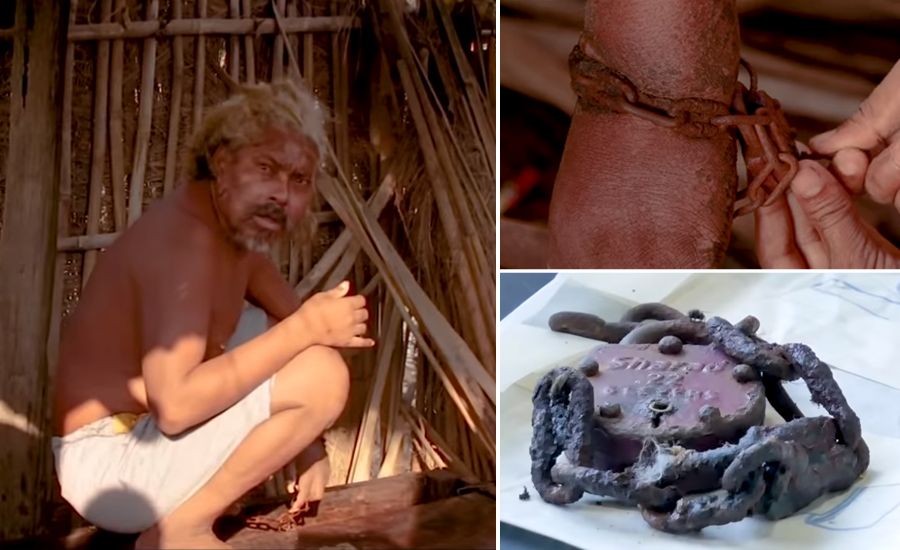
Manav Seva Ashram has a video on YouTube where an old man's hand is chained. And the chain is locked. He fell on a rusty chain and injured his hand. Ramji says, 'His own family kept him chained for 13 years. He was tied up because of mental problems. He used to defecate and eat there.
Manav Seva Ashram brought Umakanta Chaudhary of Saptari Rajviraj, who was bound by chains, to the ashram and cured him. Ramji says, 'If people with psychosocial problems are treated with love and provided with a positive environment, they will improve. When you see such a situation, you think that love should be searched with a flashlight.
There were two people like that, behind the Rashtrapati Bhavan. The Japanese who came to visit took videos of them and posted them on social media. Two persons, Anil and Sunil, were locked in two cages and their hands were tied to a lemon tree with ropes. They were shaking the iron cage vigorously and screaming, like chimpanzees in the zoo sometimes scream.
As soon as the news came to know, the team of Manav Seva Ashram reached and freed the cage. He gave love and made man.
Ramji now tells the story of Tempo Didi from Hetaunda. Her name is not specifically Tempo Didi. My name is Sushila Pudasaini. However, this society is very good at adding adjectives.
Sushila used to reach Birganj on foot and reached Hetaunda on foot. She would ask anyone she met on the road for one rupee. She would not hesitate to slap the person who did not give. Ramji says, 'There are hardly any people in Hetaunda who have not been beaten by him.'
Why is Sushila like that? Her husband brought his sister into the house as a stepmother. Susheela was not only surprised by that scene, she could not control her mental balance. After that, there was no one to take care of him. And she said, "Tampo Didi". Keep repeating like a tampo.
However, the story of 'Tampo Didi' has changed now. Manav Seva Ashram treated her and she recovered. Now she is in the service of Manav Seva Ashram.
"70-year-old mothers who walk on the street are raped, whose place of defecation is torn in one place", Ramji shows the ugly face of the society, "Psychiatric patients who are thrown from their homes on the street are raped. A baby sits in the stomach. If someone asks what is in the stomach, the pregnant woman says, "There is a stone, there is a stone." Similarly, there are 20 children born to raped mothers in Manav Seva Ashram. They don't know who their father is. It is also difficult to enroll in school.
Eight hundred people with eight hundred stories are now in the ashram. Their stories are neither told nor heard. The ashrams of this kind sometimes bring people with earworms, sometimes people with foot and stomach worms. And gives new life.
Ashram should not be opened
Ramji from Gorkha is the son of a retired soldier. How many children of Ramji?
Ramji says, "55 people."
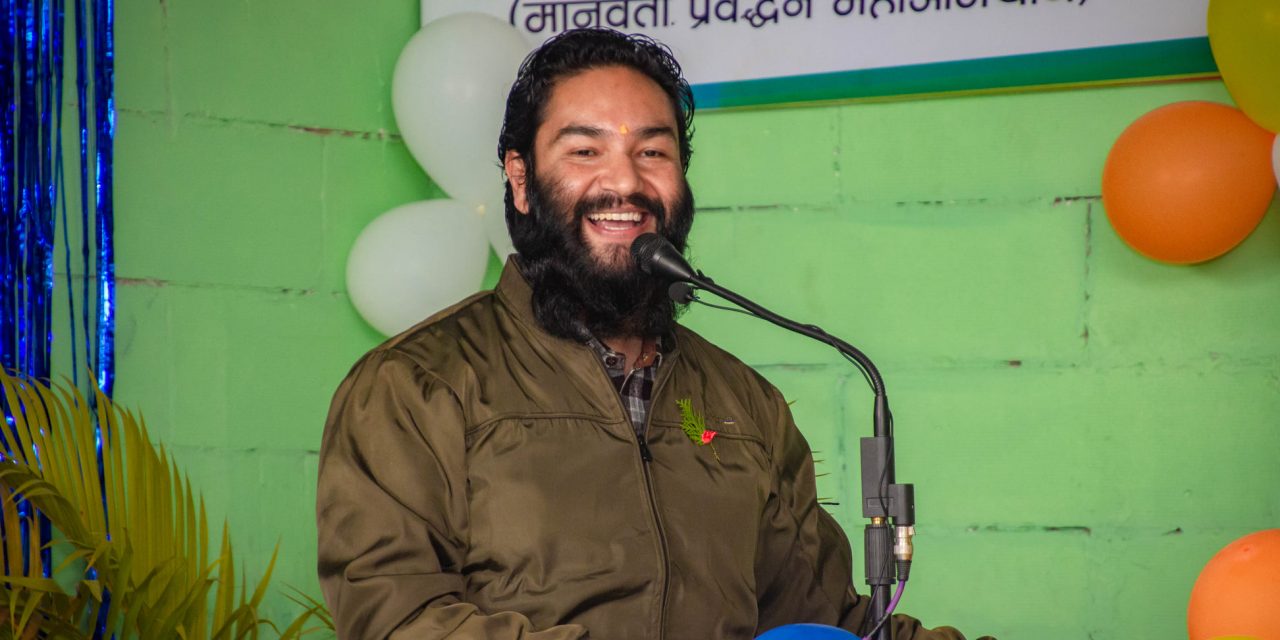
Ramji Fiss laughs and adds further, 'There is a daughter, but it seems more difficult than this. I feel that the 55 people in the ashram are like my children and the whole family of eight and a half hundred people.
The satisfaction that Ramji feels in selfless service, he does not get from anyone else. He says, "It is not so easy to bring fathers and mothers, sisters and brothers who are expected on the street to serve." But, because we accept them with love, we see all difficulties as easy, we feel joy and fun.
That is why the service of Manav Seva Ashram is spreading. A building worth five crores has been constructed in Hetaunda. The donor has provided 8 acres of land in Chitwan and the building is under construction. Elsewhere, ashrams are run in rented houses.
There are care givers in the ashram. There is regular yoga, meditation, and prostration. Manav Seva Ashrams across the country spend 40 to 50 lakhs per month.
Where does this much expense come from? How many people support the ashram on a monthly basis? Some 10-5 rupees. The vegetable traders' association gives vegetables, the fruit traders' association gives fruits', says Ramji, 'some people help by blowing their noses.'
Shitalkaji Maskey, a Gorkha businessman, has provided five percent of his two petrol pumps to the ashram. The ashram has launched a cup of tea campaign. One child one parent plan. Ramji says, "Nowadays, such a tradition has started to take place that parents come and help in their patrilineal work, cut the expenses of wedding parties, birthdays and give it to the Ashram."
However, it seems that Ramji should not have opened such ashrams. They see it as possible. He says, "Our vision is that of a country free of human beings." That is possible.
Also, in collaboration with the District Coordination Committee, Makwanpur has been declared a road-free district. Gorkha municipality has made the road human-free and the Pashupati temple complex has become a magante-free zone. The campaign to declare Bharatpur Metropolitan City as the first metropolitan city to be free of human traffic has started.
How does Ramji, who is running to change the lives of others, understand human life?
According to him, if a flowing river is dammed, irrigation will occur and energy will be released. Human life is the same. If a person gets a new life because of himself, how beautiful that life will be. Life is a fragrant flower, man should be able to spread the fragrance. I am also trying to make my life meaningful.
(This story published in online news on Baisakh 22, 2075 was written by online worker Biswas Khadkathokijee.)
